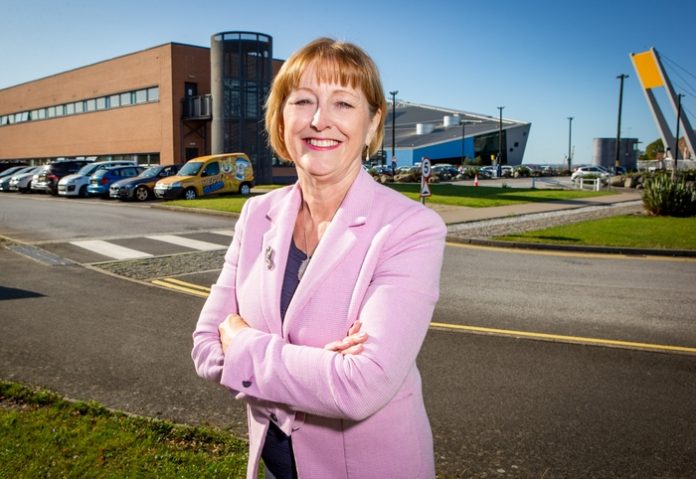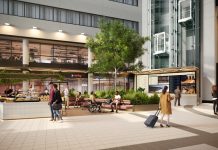
Businesses are rethinking their property requirements as part of a wider review of plans to return to work as they await a series of big announcements from the government.
Freya Cross, Business and Corporate Manager at The Deep in Hull and Chair of the Flexible Space Association (FlexSA), said her sector is receiving plenty of enquiries which point to a change in demand, but the immediate trend remains wait and see.
Mrs Cross said: “From our position at the coal face what we have seen with business performance is a mixed bag. Some businesses have performed well during the pandemic, some have stayed at about the same level and some have seen a decline.
“There has been a significant change in demand as businesses have reviewed their requirements but we are yet to see the impact of that – whether there will be an overall reduction in office space or a change in the way people acquire and use office space.
“But studies show that during the last five years the flexible space market grew by 50 per cent, and we expect that expansion to accelerate as a result of the fall-out from Covid-19.”
Mrs Cross said the latest announcement on unemployment figures due next Tuesday would normally put the spotlight on start-ups, but that event is likely to be overshadowed by whatever the Prime Minister announces in his lockdown update next Monday.
She added that the Budget on 3 March will provide the government with another opportunity to boost business confidence.
Mrs Cross said: “All we can be certain of at the moment is that everything is changing. Demand for general office space is declining but we expect a big move around March and April as restrictions are lifted.
“We expect to see more leasehold property coming onto the market as businesses look at issues around productivity and the social needs of their workforce. So many people are desperate to get back to work but some businesses have contracted back to working at home and will probably stay there.
“At the same time we have had more enquiries from people who are setting up on their own, including for virtual office space, which is what we would expect at a time of high unemployment. So we have seen positivity and negativity and as an industry experienced in dealing with change we have the flexibility to handle that.”
FlexSA members across the UK reported a decline in demand for office space during 2020, driven by businesses seeking to reduce costs during the pandemic, and changing office needs with staff expected to work from home if possible. Many flexible workspace operators are now reporting a growth in enquiries, as businesses start to plan for the future with more confidence.
At The Deep Business Centre, Mrs Cross has overseen a programme of investment to improve facilities for flexible working and to support resident firms in bringing more people back into the office.
During 2020 the Business Centre added to the existing state-of-the-art facilities in its conference suite by equipping all of its meeting rooms to enable hybrid meetings, with all audio visual equipment sourced and fitted by one of the business centre’s clients, Procom Professional Services.
Mrs Cross said: “When the first lockdown started there was a rush by businesses to acquire the hardware, software and connectivity to enable them to maintain services with a remote workforce.
“There is no doubt that many employers and their staff are eager to get back to work, and our priority is to enable them to do that safely and to connect with colleagues and clients who for whatever reason are unable to be in the same room.
“But having spent significantly to support home working we also see other companies exploring the options around a long-term return on that investment. Productivity is important but so is employee wellbeing and flexible working really comes into play when you need to strike a balance between having desks in the office or at home.”





















